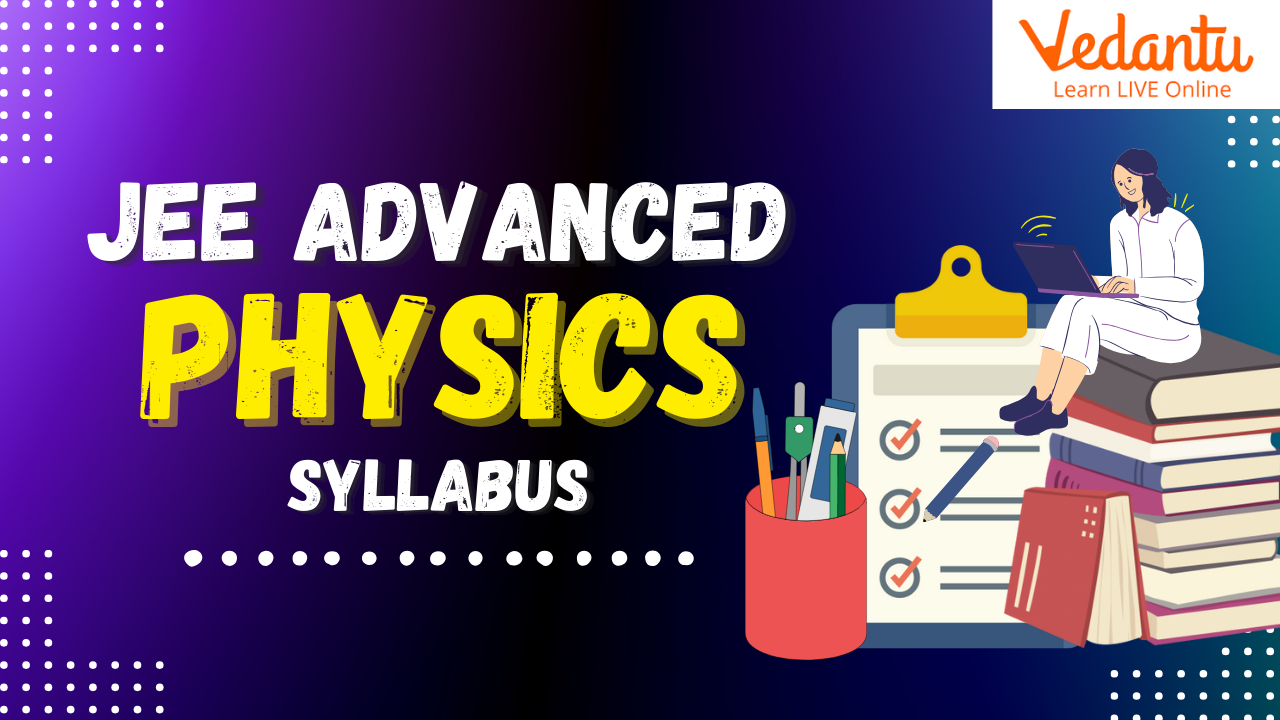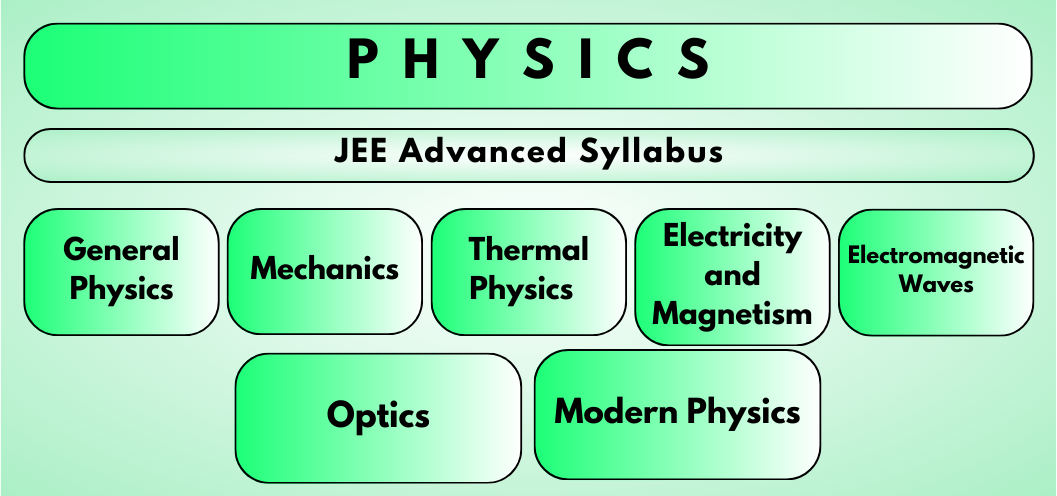JEE Advanced Physics Syllabus 2026: Download the Topic-Wise PDF
FAQs on JEE Advanced Physics Syllabus 2026
1. Is it necessary to study the entire syllabus for JEE Advanced?
Yes, it is necessary to study the entire syllabus for JEE Advanced to have a comprehensive understanding of all the concepts that may be tested in the exam.
2. How to know if I am prepared for the JEE Advanced exam?
To know if you are prepared for the JEE Advanced exam, you can take mock tests, practice solving previous year question papers, and get your doubts clarified by teachers or online resources.
3. I Appeared in the Class XII Examination for the First Time in 2025. Am I Eligible for JEE Advanced 2026?
Yes, candidates who appeared in the Class XII Examination for the First Time in 2025 are eligible for JEE Advanced 2026.
4. Is HC Verma Enough for the JEE Advanced 2026?
HC Verma is a good book for building conceptual understanding in Physics, but it may not be sufficient for JEE Advanced preparation as it lacks a variety of problem-solving practice.
5. Is NCERT Sufficient for the JEE Advanced 2026?
NCERT textbooks are a good starting point for JEE Advanced preparation, but they may not be sufficient for in-depth understanding of all the concepts. Additional reference books may be needed.
6. What is the weightage for each topic in the JEE Advanced Physics Syllabus 2026?
The weightage for each topic in the JEE Advanced Physics Syllabus 2026 is not officially released by the Joint Entrance Examination (JEE) Advanced. However, based on past years' question papers, it is estimated that the weightage for each topic is as follows:
Mechanics: 35%
Electrostatics: 15%
Magnetism: 10%
Optics: 15%
Modern Physics: 10%
Thermodynamics: 10%
Waves and Oscillations: 5%
Units and Dimensions: 5%
7. Is the JEE Advanced 2026 syllabus the same for all IITs?
Yes, the syllabus is uniform for all IITs as it is centrally released by the organising IIT.
8. How many subjects are there in JEE Advanced 2026?
There are three subjects: Physics, Chemistry, and Mathematics.
9. Are there any deleted topics in JEE Advanced 2026?
No major topics have been removed, but some numerical-heavy problems have been simplified.
10. What are the toughest topics in JEE Advanced Physics?
Mechanics, Electromagnetic Induction, and Thermodynamics are considered the toughest.



























